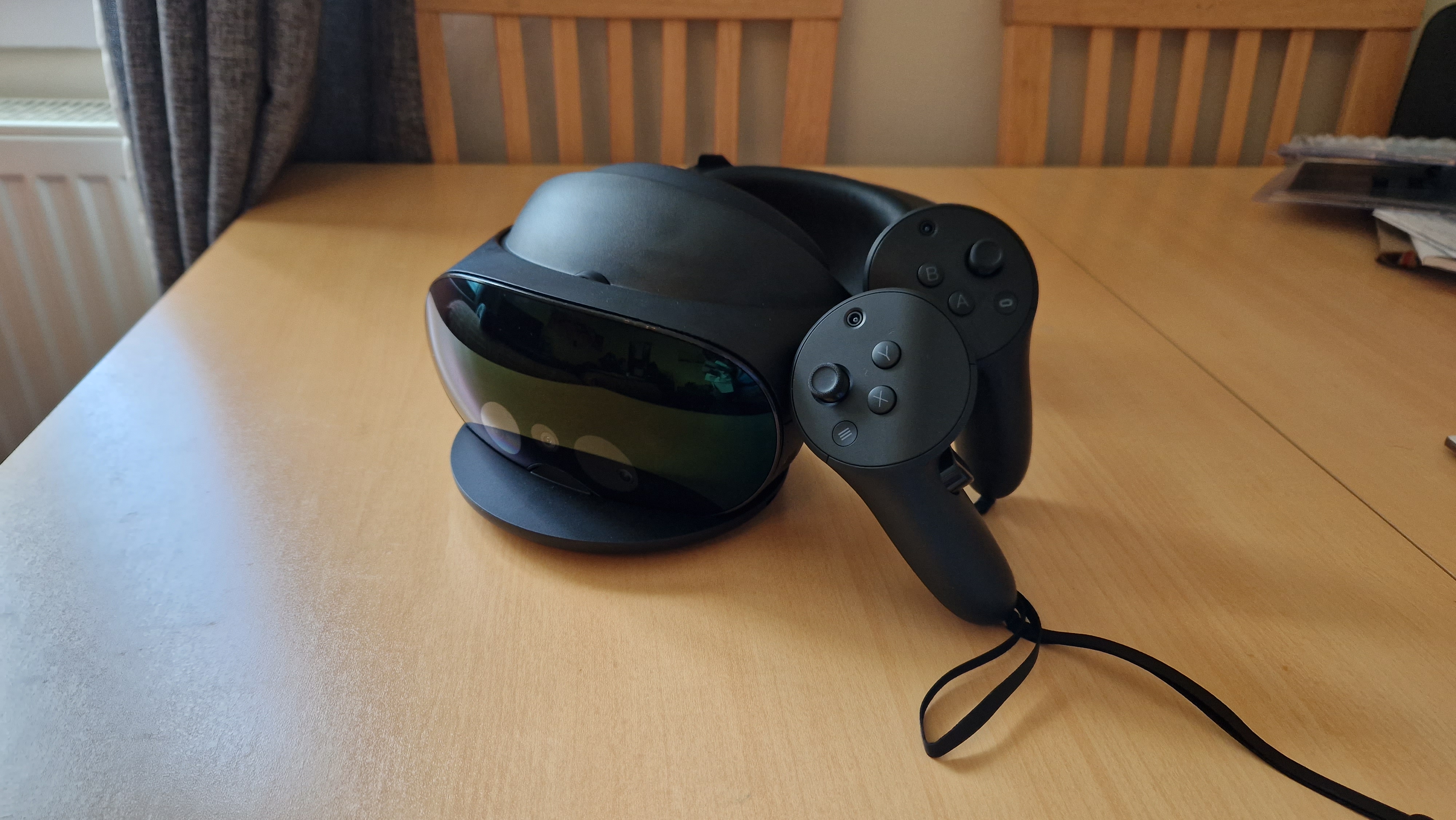GamesRadar+ Verdict
I'd have loved to recommend the Quest Pro as a VR gaming platform, but it showed me that it can't cut through the noise of its Meta DNA. As a standalone, it's extremely powerful, but the battery life simply can't sustain it for long enough. If you have half the privacy concerns with Meta as I do, this is one to avoid with all your might.
Pros
- +
Comfortable design
- +
Powerful standalone VR headset
- +
Good controllers
Cons
- -
Terrible battery life
- -
Warrants so many privacy concerns
- -
A lot of Metaverse fluff
- -
Expensive for a standalone
Why you can trust GamesRadar+
The Meta Quest Pro feels like one of the first major steps in Mark Zuckerberg's mission to create the Metaverse, a virtual plane of existence that mixes virtual reality and augmented reality in an attempt to transform the way humans work, socialize, and play. I want to be completely honest out of the gate. I have absolutely no interest in the Metaverse as a potential future for the human race. I think it's a concept that on paper sounds "futuristic" and "streamlined", but will ultimately be clunky, dystopian, and unnecessary thanks to a lot of the great technology we use already.
Regardless, the folks at Oculus are some of the trendsetters in virtual reality, and following on from the mainstream success of the Meta Quest 2 as one of the most accessible VR gaming platforms on the market, the Meta Quest Pro is the next stop in the company's historic journey. This is the first release from Oculus since the Meta rebrand, so it's a big glimpse into how things may have changed.
After a price drop since launch, the Meta Quest Pro will set you back a hefty $999 / £999, which pits it against the very best VR headsets on the market that aren't standalone devices.
Without any interest in using Metaverse features, the question I set out to answer with this review was, can the Quest Pro cut through the noise of its Meta DNA to deliver another successful VR gaming platform?
Design and Features
| Meta Quest Pro Key Specs | Header Cell - Column 1 |
|---|---|
| Dimensions | 265 mm (L) x 127 mm (H) x 196 mm (W) 265 mm |
| Weight | 722g |
| Processor | Qualcomm Snapdragon 662 mobile processor per controller |
| Battery | Built-in rechargeable, USB-C connectivity |
| Display panels | LCD |
| Resolution | 1800 x 1920 |
| Refresh rate | 90Hz |
| FOV | 106° horizontal, 96° vertical |
| Storage | 256GB |
| RAM | 12GB |
| Wi-Fi | Wi-Fi 6E, 6GHz |
As you'll determine from that table, the Meta Quest Pro has an impressive litany of tech specs to its name, at least as far as standalone VR headsets go. Having said that, the major VR categories show some disappointing results when compared to our other favorite VR headsets. In terms of display, that 90Hz, LCD panel with a 1800 x 1920 resolution per eye doesn't stand up to the HTC Vive Pro 2, which boasts a massive 2448 x 2448 per eye with 120Hz. PSVR 2 also has it beat, with an OLED panel that casts a 2000 x 2040 resolution per eye, and a similarly smooth 120Hz refresh. FOV between these three top market competitors is closer, though, with PSVR 2 having 110°, Vive Pro 2 showing 120°, and the Quest Pro displaying 106°.
Of course, these two rival headsets aren't standalone and need other devices to work. The Qualcomm Snapdragon 662 mobile processor was most impressive and held up with multitasking very well. In all my time with the Quest Pro, it never felt like it was getting warmer due to workload, which is most impressive when it has the powerful innards this one does.
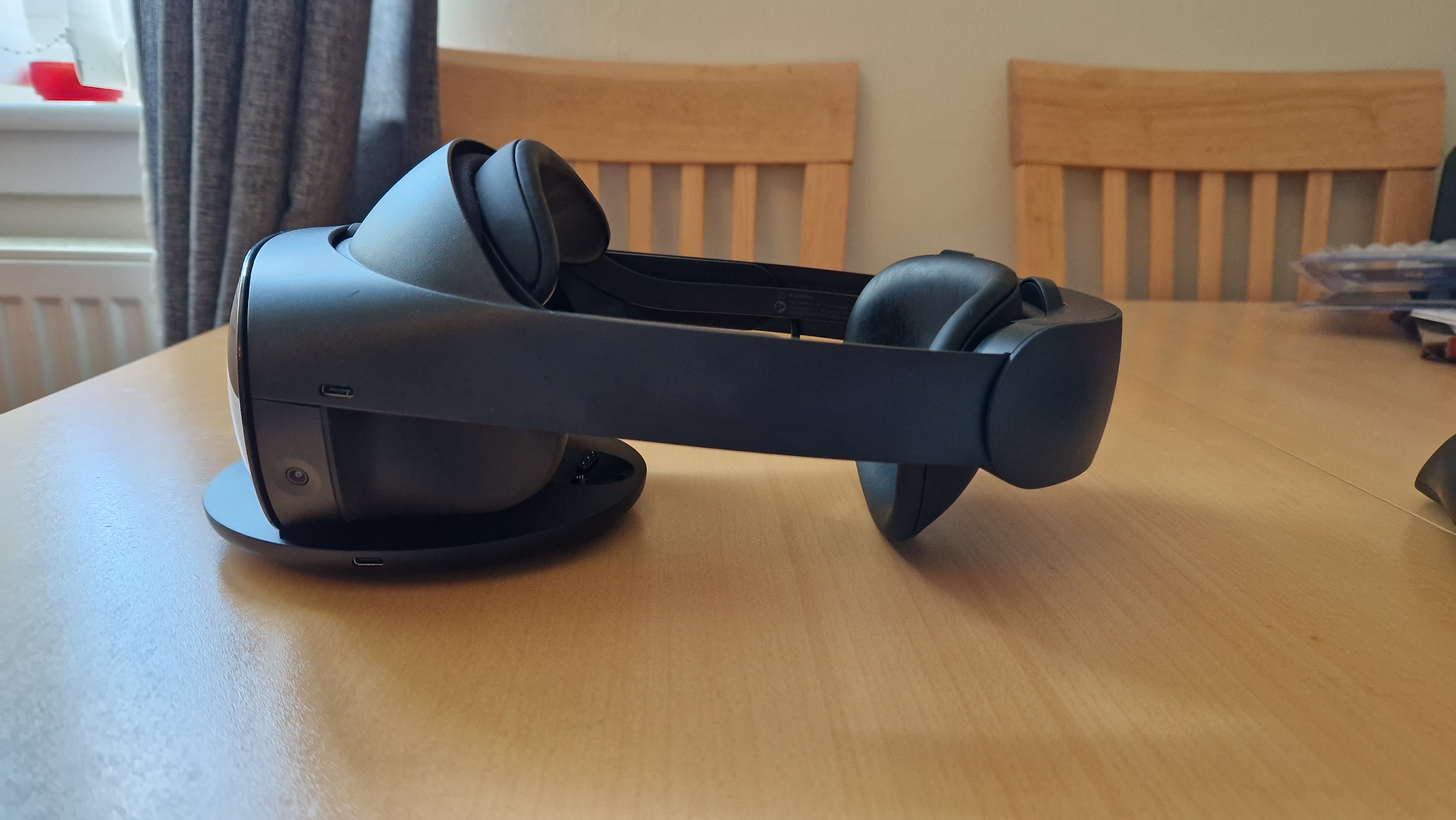
In the very neatly packed box the Quest Pro comes in you get one headset, two controllers, a charging stand, charging cables, a front face cover, and various other documentation. The charging stand is a minimalist and seemingly convenient little platform you can use to house or display the entire loadout, but in reality, it was more of an annoyance than it was useful. I tried a number of times to charge the Quest Pro and its controllers on it, but I'd come back to it hours later to find that the gear wasn't quite sitting correctly and therefore wasn't charging. Luckily the bundled cables work just fine.
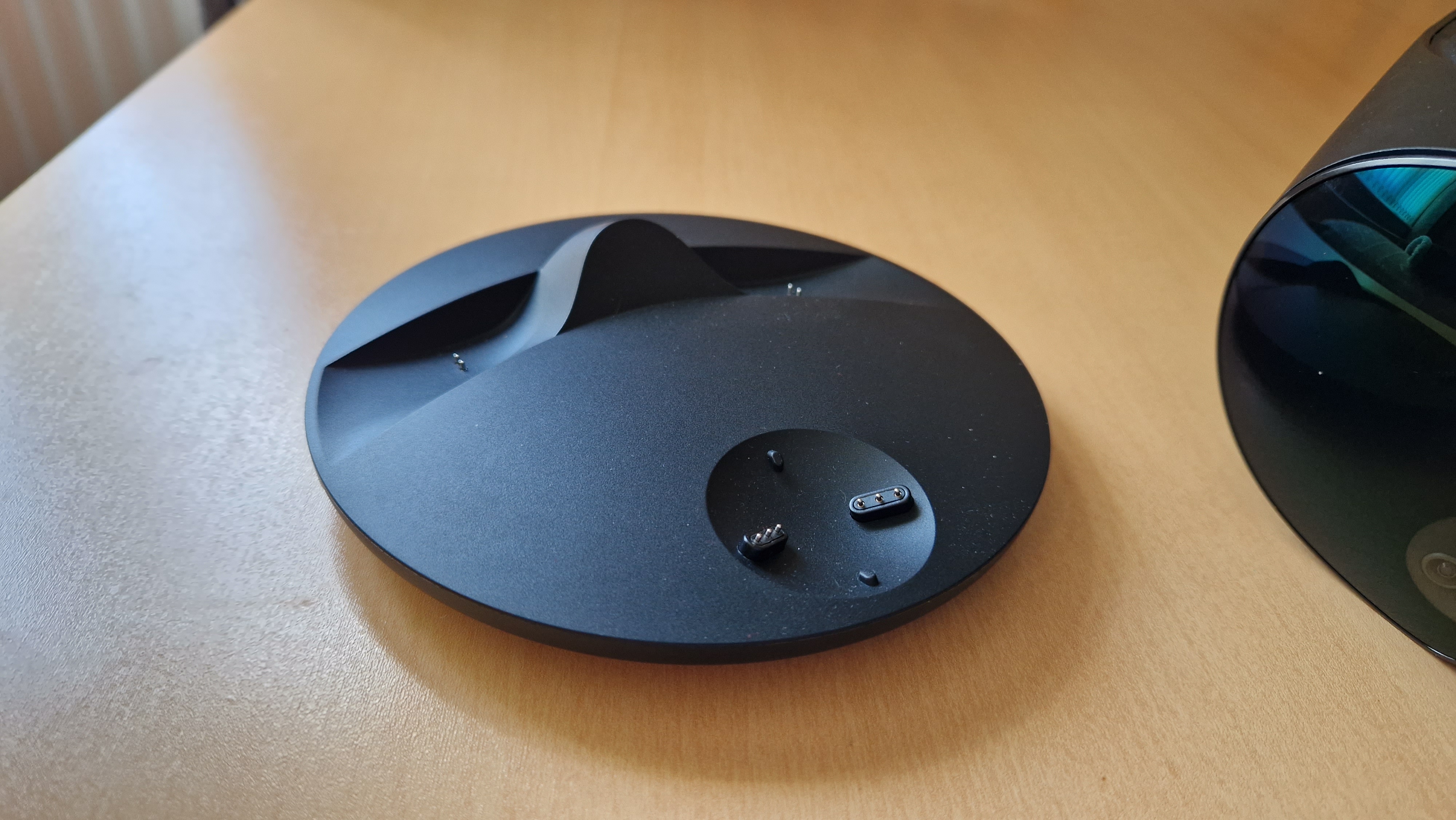
Indeed, where I think the Meta Quest Pro shines is in its design. This is a mixed-reality headset designed predominantly for "professional" use, and it absolutely has that premium feel and look to it. Even at a first glance, the headset itself looks like something from the future - it's less bulky than the majority of its competitors, and its sleek black hues give it some really nice accents.
That carries over to the fit too, because the Quest Pro feels light on the head, and the leatherette cushioning on the front and back really makes it feel supported and comfortable. This is especially great for playing games like Pistol Whip, where head movement is key and you don't want a whole grand's worth of tech to slip off or out of position. I love the fit and the design of the headset overall. It's up there with the comfiest I've worn. The headband seems completely fixed into position though, meaning you won't be able to benefit from the best Meta Quest 2 accessories here.
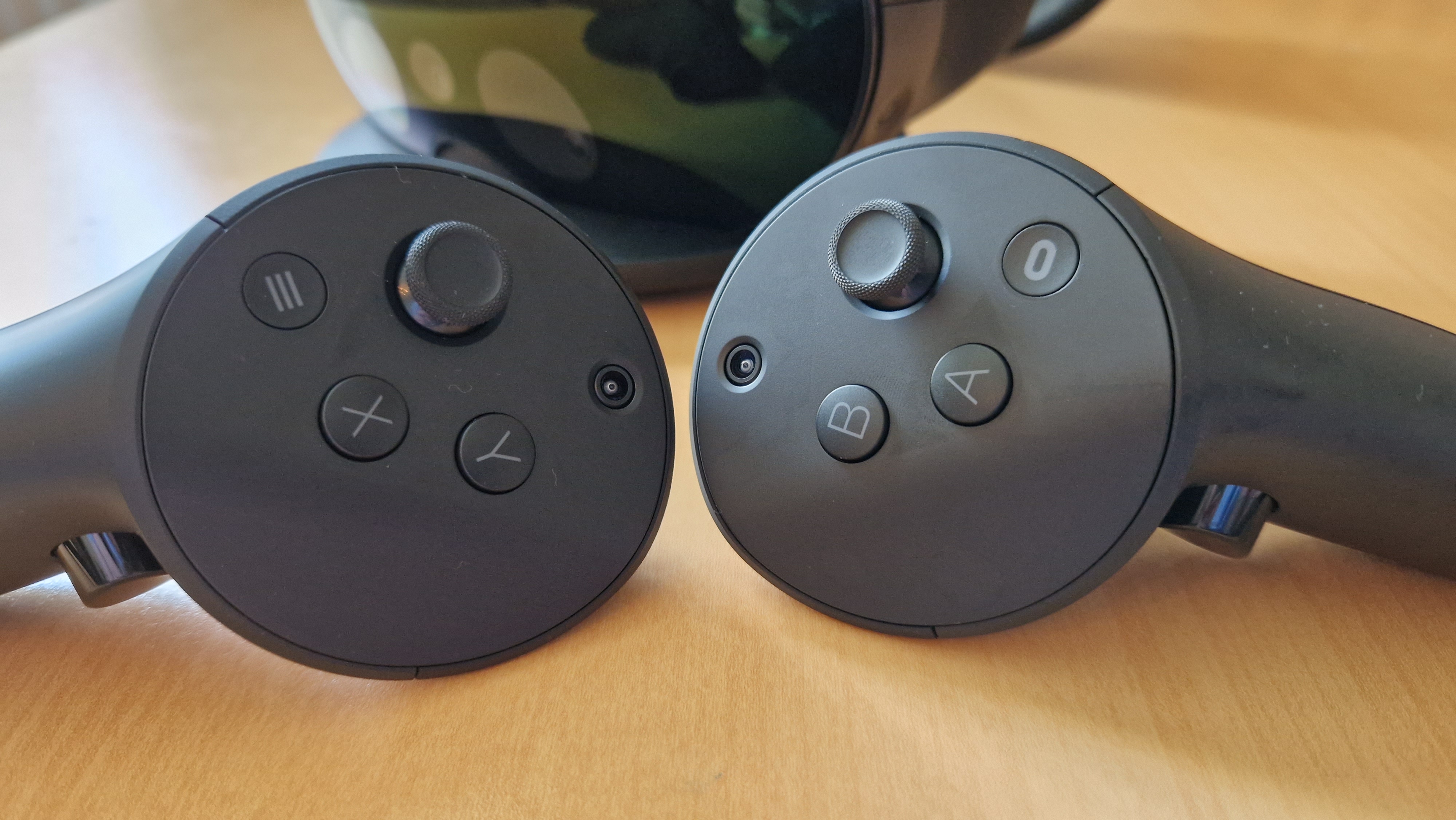
In terms of the controllers, it's a similar story. They have a nice weight to them and feel rounded and ergonomic in the hands. They do feel a bit small and don't have the capacitive or haptic kick that PSVR 2's controllers do, but they work just great in any game I played. If there was one criticism I could make of these controllers, it's that the face buttons feel a bit small, and can be difficult to find at times. Both the triggers and grip buttons have an expensive feel to them, however.
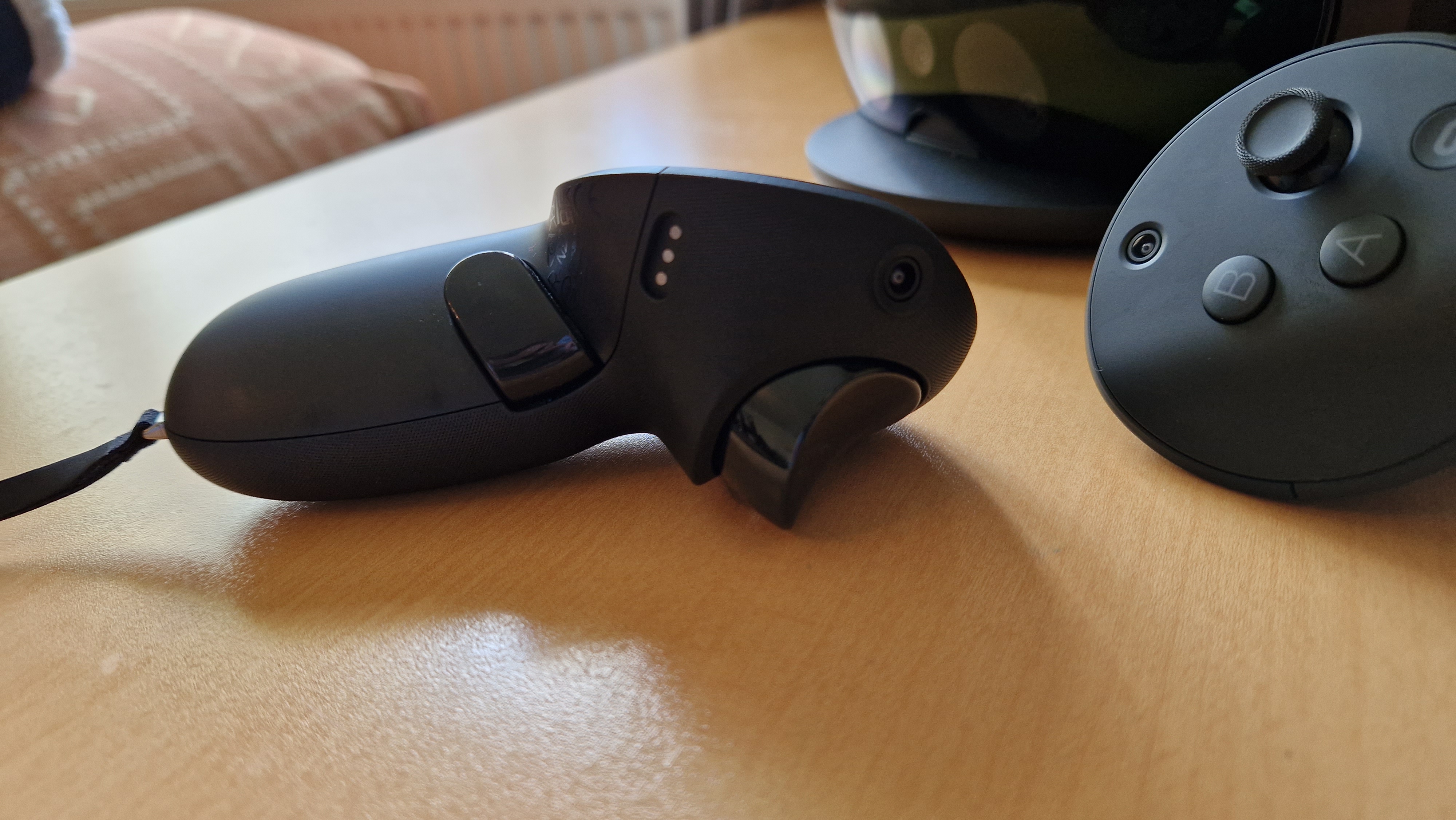
Performance
In general, the Meta Quest Pro can pack quite the gaming punch. With full backwards compatibility with Meta Quest 2, there's a pretty massive library of VR games to choose from. Moreover, those impressive specs for a standalone definitely amount to a cohesive gaming package.
The controllers, perhaps most of all, work just great. Movements are accurate and can be really precise. Unfortunately, I still don't feel like the price of this headset, even after a post-launch price drop, is worth it for gaming. That's due to a few factors, not to mention the strong rivals in the price range. The biggest issue by far though has to be the battery life.
I mentioned above that as a standalone VR console, the Quest Pro has some beefy innards. That can only mean one thing: extreme power hunger. I can't stress enough how poor the battery life of the headset and controllers is. From a full charge, one measly hour of Pistol Whip took the headset down to 50%, and the controllers down to 20%. The quoted 10-hour battery life absolutely faceplanted during testing, and this definitely won't stand up to any longer gaming sessions. I also frequently found that between uses, if I didn't charge the headset or controllers, they would lose charge while not in use. This was despite my turning the headset all the way off - not leaving it on standby - and this didn't leave me with a confident feeling when it came to privacy (more on that soon).
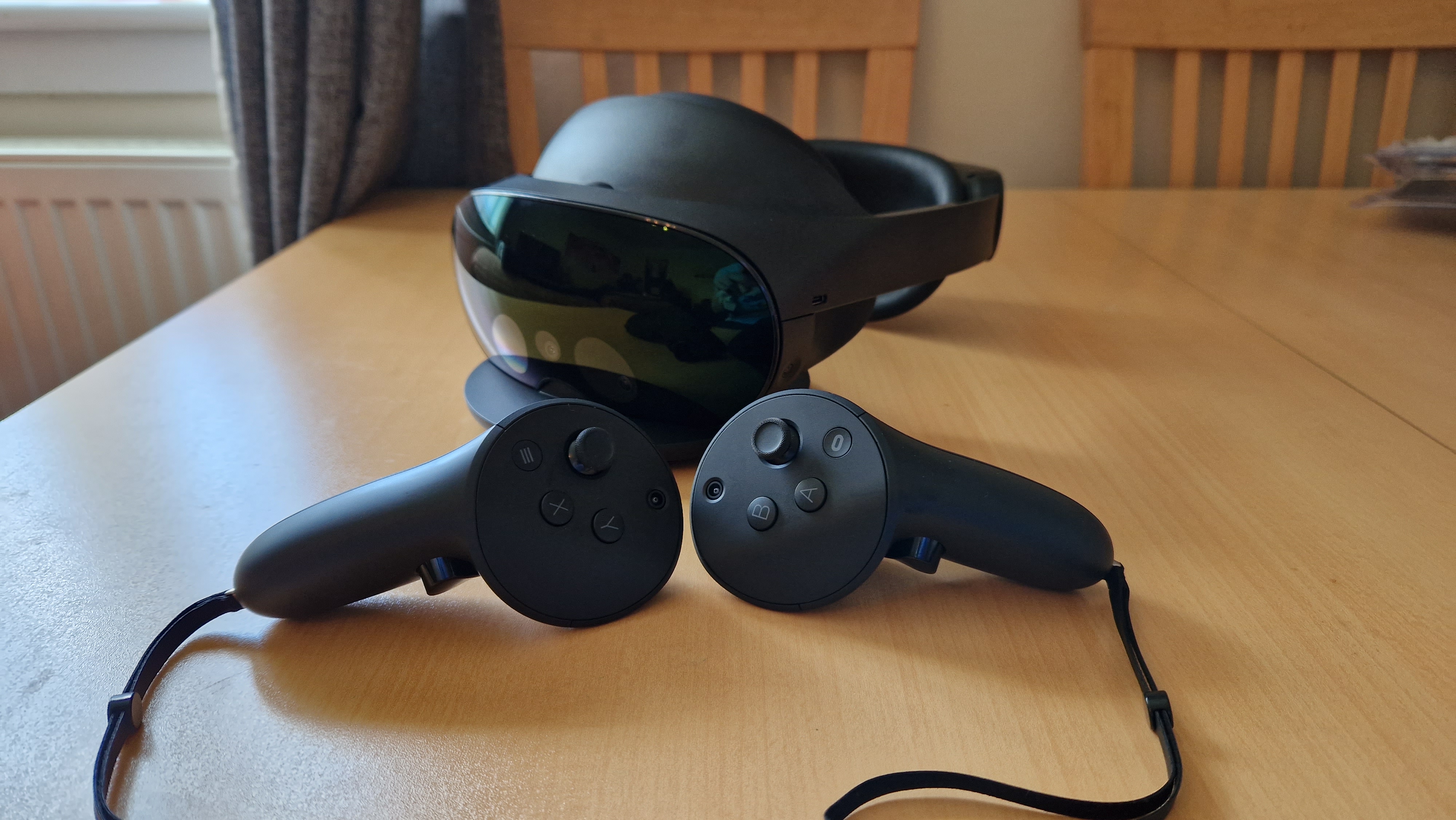
Although I like the Meta Quest Pro's design, it's not without its flaws. For instance, the light guards on the inner sides of the headset don't do anything to block out light from beneath the display. When using passthrough or AR elements, this helps integrate spaces better, but it's a really distracting and often disorienting design flaw. I found it actually made any feelings of nausea and motion sickness worse because I had a constant reminder that the rest of my body wasn't moving while playing Population One. Moreover, when playing Little Cities, a god game where you frequently look down at whatever civilization you're constructing, that pool of light bleeds in from below and is a constant immersion-breaker.
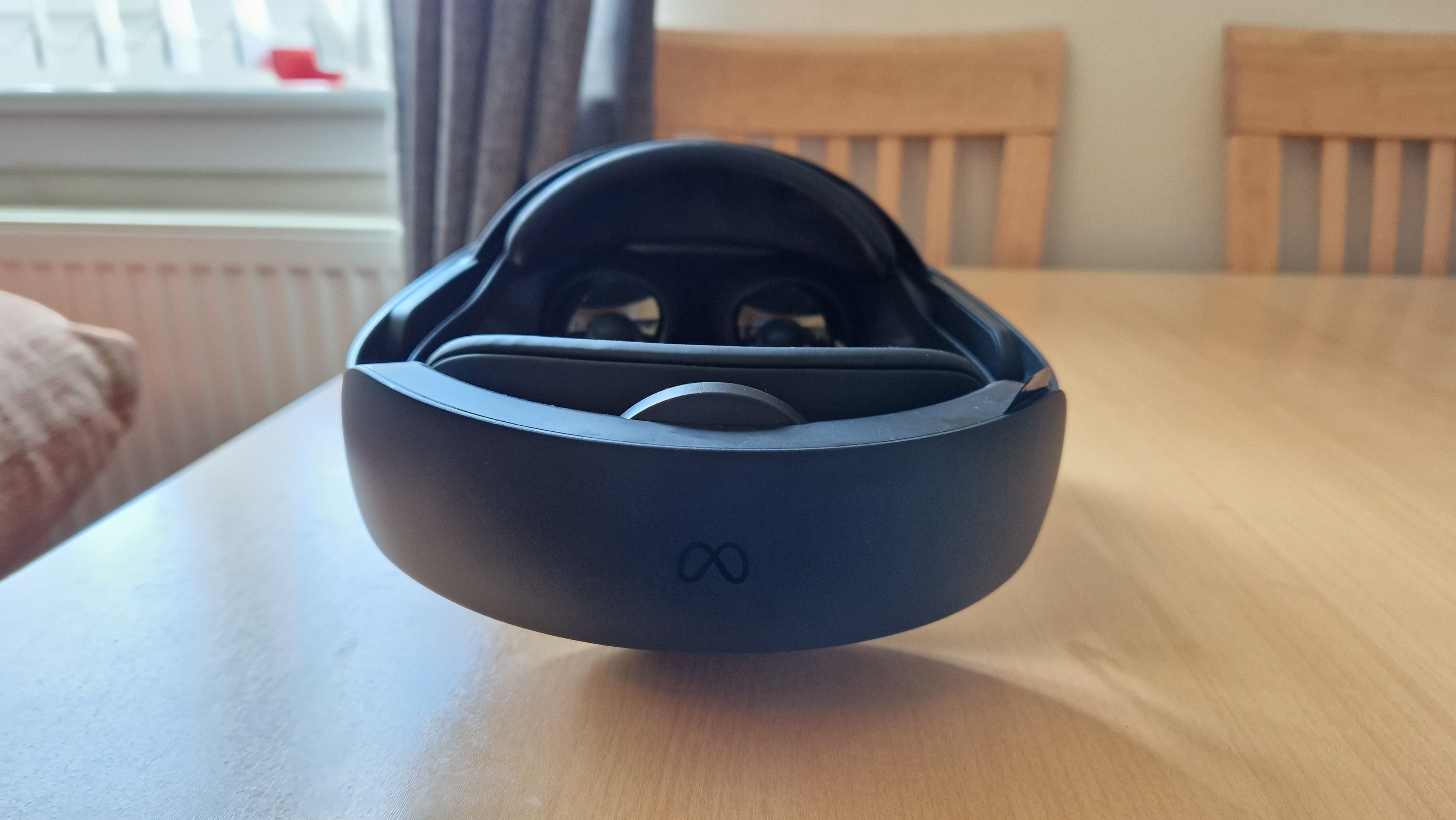
By far the most frustrating thing about AR integration was a bug I experienced with passthrough. If you don't want to be faced with Zuck's bizarre Metaversal VR treehouse every time you enter the Quest Pro, the other option is to switch on passthrough, which integrates the VR elements you're using into your immediate surroundings through the frontal cameras. Whenever I played a game with this on though, I'd frequently be pulled out of my game and into my living room. The game wouldn't suspend - it would keep playing, and I'd hear it. But I would have to guess as to what movements to do to keep me in RacketNX's intense rallies. For a while, I thought this issue was to do with the "Guardian", Meta's room tracking features - but each time I was pulled out of a game, I wasn't anywhere near real-world obstacles.
Does Meta Quest Pro perform as a VR gaming headset then? Yes, it does. But it doesn't have the visual oomph of PSVR 2, even compared to the cinematic mode on that system. It is nice to be completely wireless, but this isn't something I feel seriously holds back other VR headsets. Unfortunately, the battery life makes it nigh on impossible to recommend.
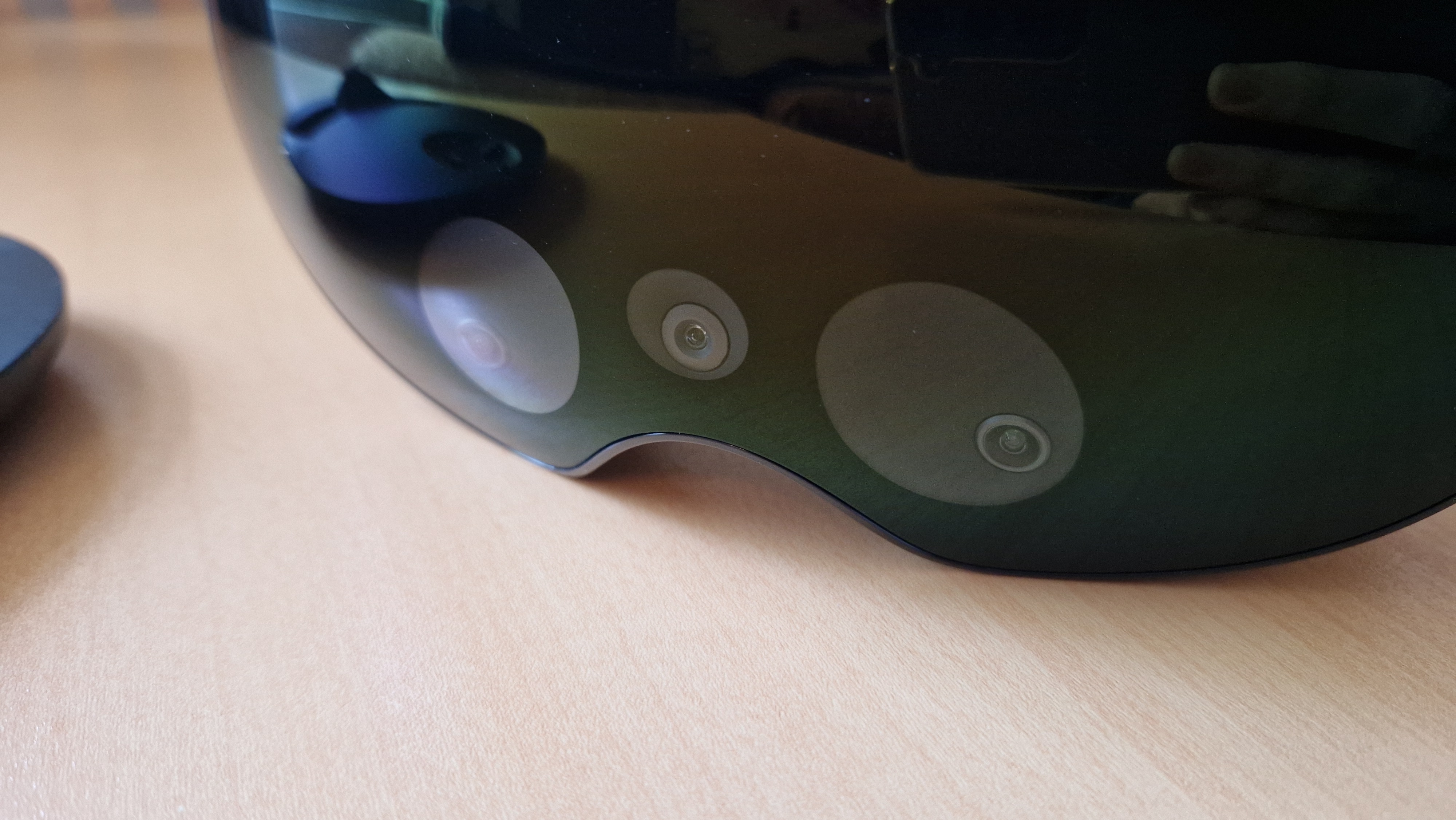
Privacy
Regardless of your thoughts on the idea of the Metaverse, a lot has been said in recent years about the privacy issues surrounding Mark Zuckerberg's digital empire. Although I can't say for certain that this latest mixed reality device will help Meta to data mine, I feel it's important to state the potential privacy issues with it, especially considering the brand's track record in this area.
Renaming as Meta and announcing a new vision for the future might seem like the Facebook company turning a new leaf, but in my time with it, the Meta Quest Pro's invasive setup process and various permission requests showed me otherwise. My goal was to review this platform for its gaming merits alone, but at almost every turn I was met with Metaversal fluff and a feeling that I was always being watched.
Again, I cannot say fundamentally that Meta is stealing the data of anyone who uses the Meta Quest Pro, but to me, this is about trust. Meta has proven time and time again how it chooses to mine and utilize user data for nefarious purposes - mainly profit. With its track record, I think it's completely fair to be skeptical and state these issues as a word of warning to anyone thinking of buying this device.
For starters, you'll need a Facebook, Meta, Instagram, or Oculus account to log in and set up the Quest Pro. However, the headset took me round in circles as I tried to access any of these accounts, and it soon became clear that the only way I was going to be able to use the headset was by linking them together and giving Meta a more rounded profile on me.
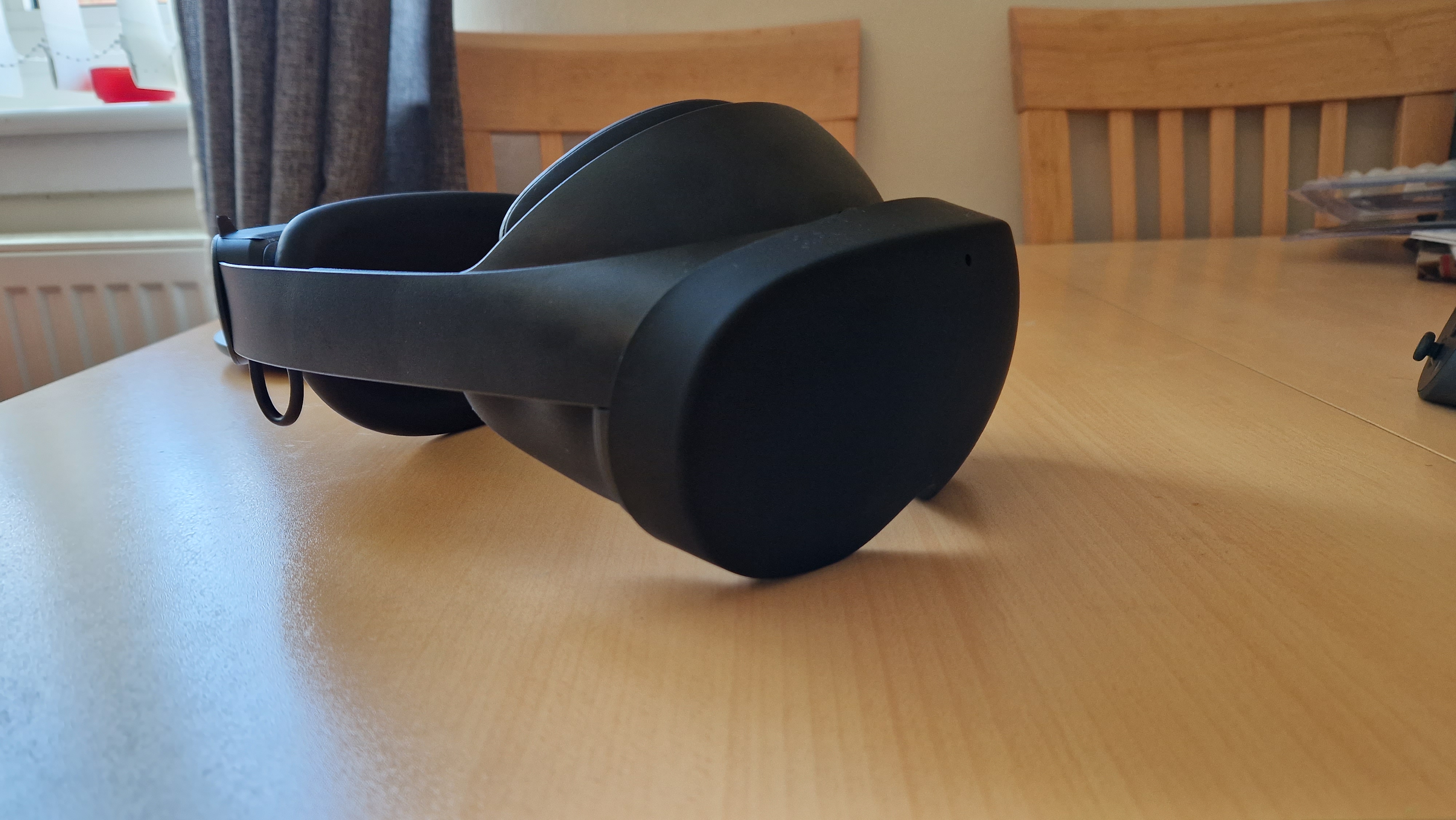
The headset then told me in the most innocuous way it could that I'd need to download the Meta Quest mobile app to continue with the setup. I wasn't to worry, so it said, I could always delete this app after the initial setup was complete. That of course, wasn't really the case. To redeem game codes or control other settings, the app was needed again.
As is the case with most modern smart devices, I was then asked to consent to every term and condition under the sun and asked countless times to give permission to Meta to collect yet more information. I said no as often as I could, but a lot of these things are mandatory to even reach the game store.
One feature that sums up my privacy concerns is hand tracking - an incredible tool in VR that lets you interact with the virtual world with nothing but your hands as they're tracked by the headset. What an excellent feature when your controllers run out of battery as frequently as these do. In order to use this feature, you have to consent to the cameras recording your surroundings at all times to report diagnostic information back to Meta. Considering how much behavioral analysis this company can access from you scrolling up and down a timeline, the data mining potential at play here is limitless.
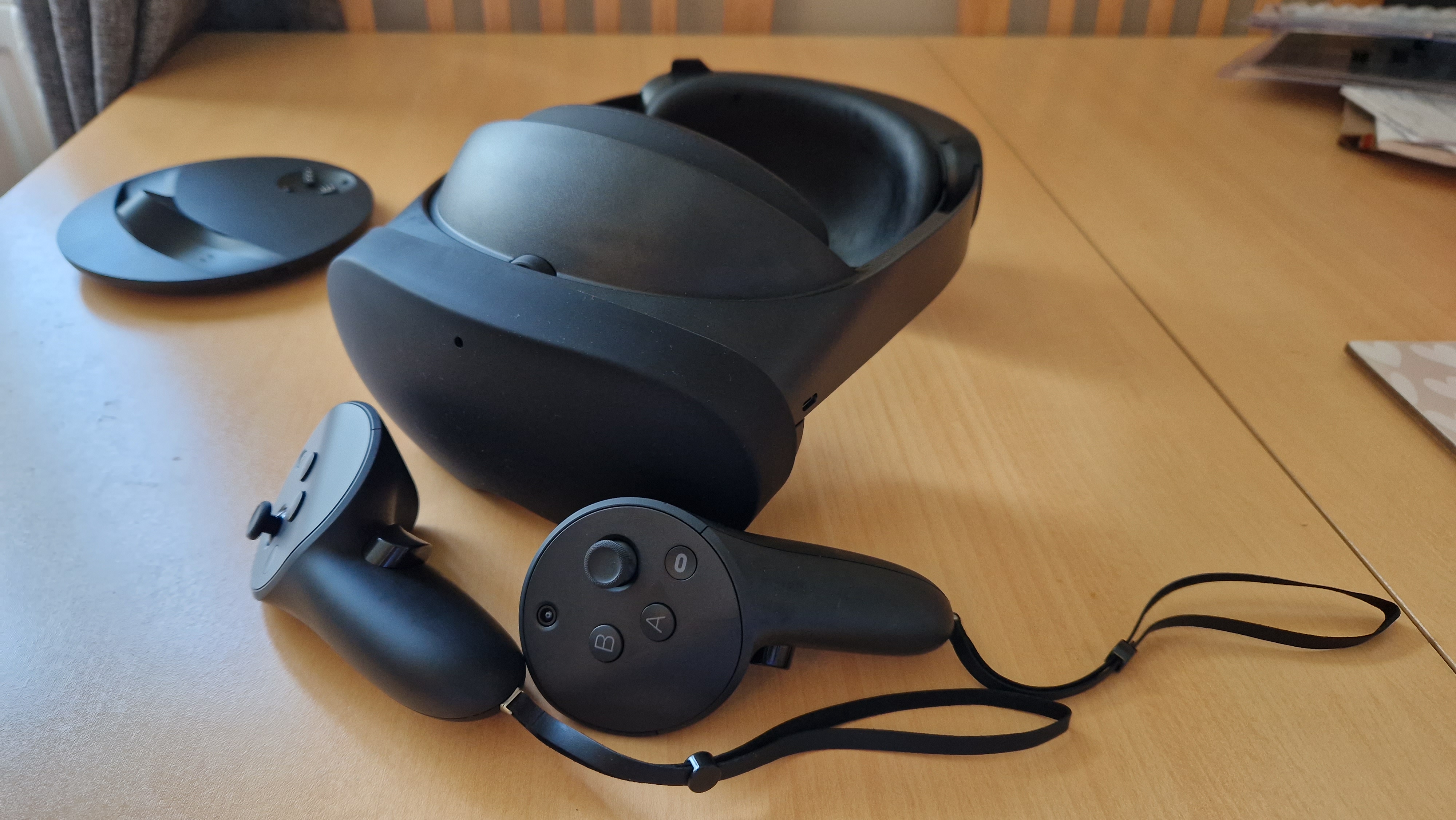
It wasn't long after using this feature that I started receiving targeted ads that seemed to coincide with the objects and even furniture the cameras were seeing in my living room. It was like targeted ads about a conversation you just had with a friend that your phone had clearly been listening into - dialed up to eleven. Given that there's facial tracking and in-depth avatar creation at play too, I have a lot of concerns about how Meta will use information from these features.
A few times when the headset was turned off, I'd walk past where it was sitting. Without a single prompt, the power light would turn on as the headset booted up. I'm sure I remember having to consent to Quest Pro recording proximate activity for controller tracking, but this just felt altogether ominous. Remembering that charge percentages would frequently deplete between uses, it definitely seems as though the headset will listen in, or perhaps watch you while it's not in use.
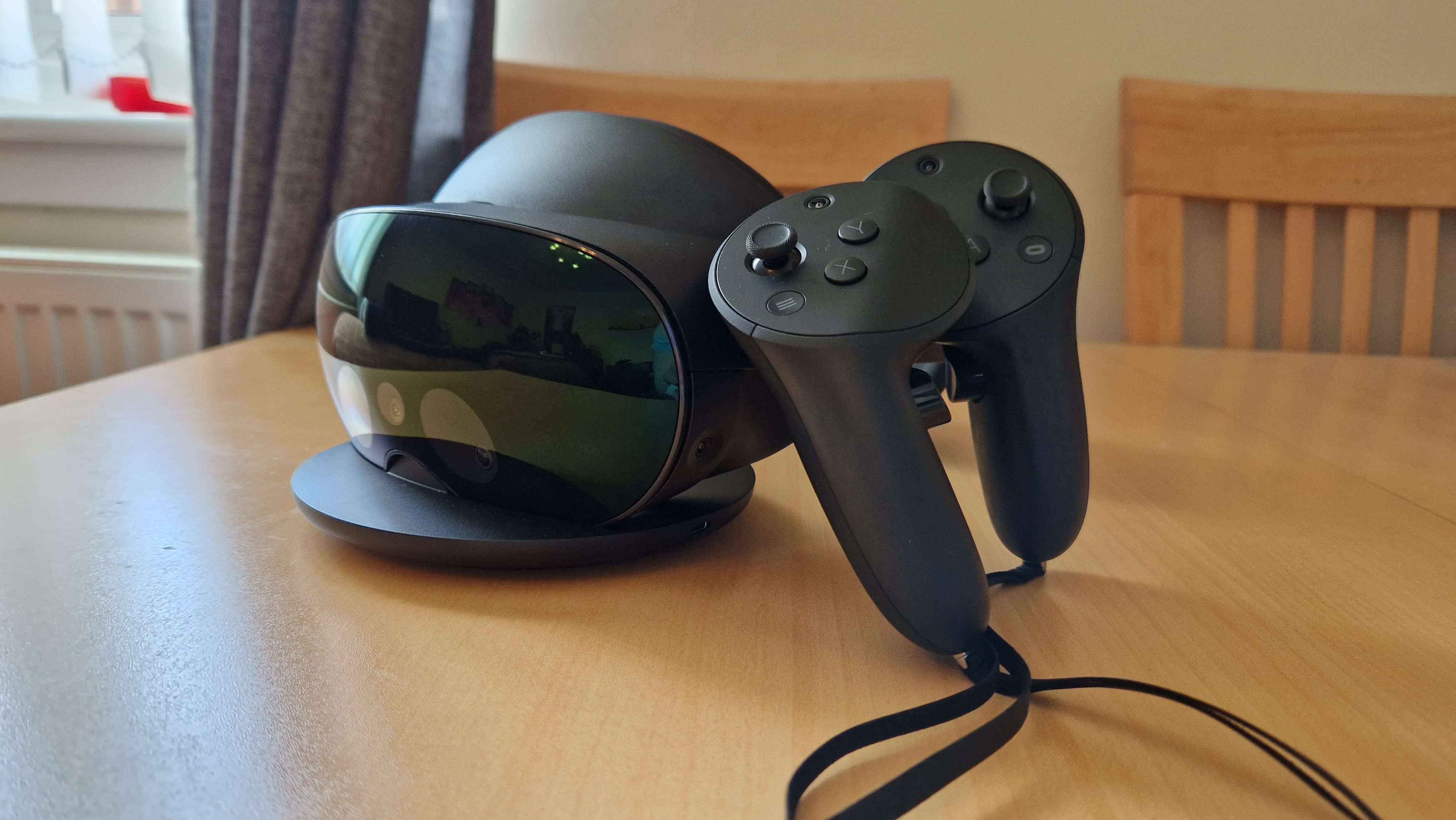
Should you buy the Meta Quest Pro
Truth be told, I would love to recommend the Quest Pro as a gaming-only headset. Oculus has built a powerful standalone, and packed it with plenty of innovative MR features. It's a shame that any knowledge I have about its parent company made me completely uninterested in using them. The Quest Pro proved to me in my time with it that the data mining and Metaversal features simply can't be avoided if you only want to play games. If the Metaverse is something you personally want to see, the Meta Quest Pro will undoubtedly help you to get there.
Unfortunately, Mark Zuckerberg's company has a data mining past that no amount of rebranding will erase.
This is the same company that has singlehandedly rewired the brain chemistry and attention span of anyone who has been subjected to its feed-scrolling algorithms for long enough. This is the company that enabled elections and democratic processes to be disrupted and corrupted through a lack of security over its users' data. Now, it's harnessed the power of one of the industry leaders in virtual reality technology to come to market with a headset that will track your mannerisms, face, home, hands, and working habits - all in the name of digital progress. That all sounds like the prologue to a cyberpunk novel to me. So no, I cannot in good conscience recommend this to anyone looking for a VR gaming headset.
We are spoiled for choice with great VR platforms at the moment. The PSVR 2 is a triumph in the making as more games are promised for it, the HTC Vive Pro 2 and Valve Index continue to be massively viable PC VR headsets that, although more expensive than a Quest Pro, offer better gaming specs. Even the Meta Quest 2, owned by the same corporation (and likely mining data for it too), is a much easier recommendation for gaming alone.
I recommend you go for one of those instead.
How we tested the Meta Quest Pro
I used the Meta Quest Pro over a period of a month, using it predominantly for gaming, and dodging Metaversal features wherever possible. I did use other applications like Facebook Messenger, YouTube, and other free applications from time to time too. The games I played for testing were Pistol Whip, Little Cities, Population One, and RacketNX. I compared these gaming experiences closely with the PSVR 2 and other VR headsets we've covered. To test the battery life, I set timers and tracked percentages.
To ensure my privacy concerns were sound and balanced for this review, I spent a lot of time researching Meta's track record of privacy issues. For anyone looking for more information on it, I'd recommend The Social Dilemma, or The Great Hack as accessible starting points. For more in-depth reading, I'd recommend the journalistic work of Carole Cadwalladr which investigated Cambridge Analytica.
To read more about how we test the latest gaming technology at GamesRadar, take a look at our hardware policy.
Gearing up for a PC VR headset? Upgrade your rig with the best gaming PCs, the best CPU for gaming, and the best graphics cards.
One of my earliest memories is playing SuperMario64 and wondering why the controller I held had three grips, but I only had two hands. Ever since I've been in love with video games and their technology. After graduating from Edinburgh Napier University with a degree in Journalism, I contributed to the Scottish Games Network and completed an Editorial Internship at Expert Reviews. Over the last decade, I’ve been managing my own YouTube channel about my love of games too. These days, I'm one of the resident hardware nerds at GamesRadar+, and I take the lead on our coverage of gaming PCs, VR, controllers, gaming chairs, and content creation gear. Now, I better stop myself here before I get talking about my favourite games like HUNT: Showdown, Dishonored, and Towerfall Ascension. Location: UK Remote
